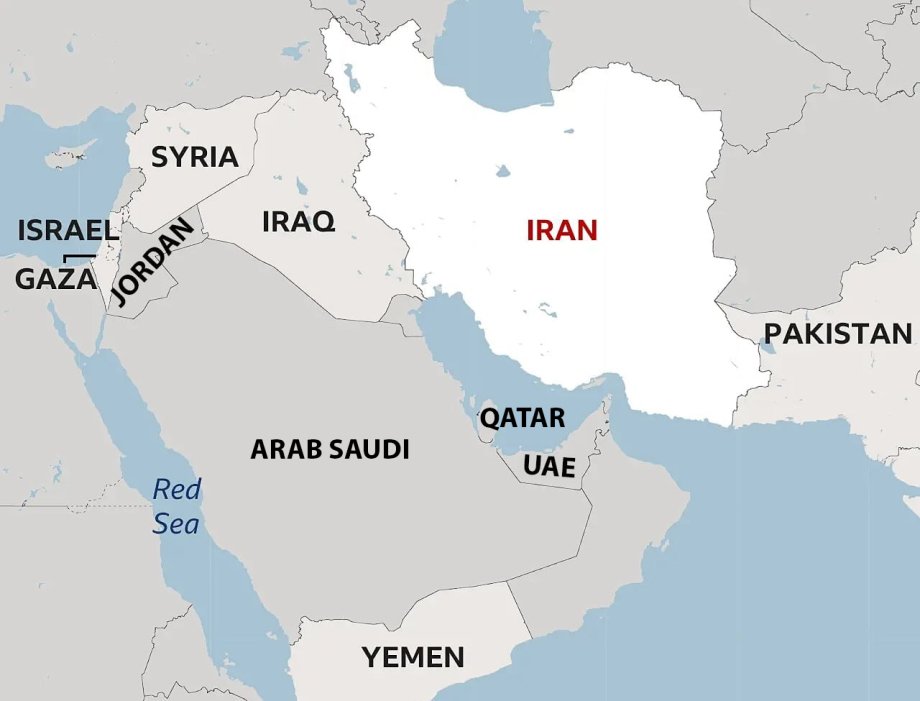Arshad Mahmood Awan
Israel’s bombardment of Hamas officials in Doha is not just another military operation in the long and bloody cycle of conflict in the Middle East. It is, by every measure, a strategic earthquake — a dangerous precedent that may reshape the region’s politics, redraw red lines, and undermine even the fragile prospects of diplomacy.
On Tuesday, Israeli jets struck a residential compound in Qatar’s capital, targeting the political bureau of Hamas as it deliberated on a US-backed ceasefire proposal for Gaza. While the top leaders reportedly survived, their aides, bodyguards, and a Qatari security officer were killed. The attack not only punctured Qatar’s sovereignty but also struck at the very premise of international mediation, since Doha has long hosted Hamas’s exiled leadership at the request of global stakeholders, including the United States.
For years, Israel has pursued a borderless campaign against Iran and its allies — Hezbollah in Lebanon, Assad’s Syria, Houthi rebels in Yemen, even inside Iranian territory itself. These shadow wars, though destabilising, were tolerated by many in the West as long as they were contained within the Iran-Israel axis. But Qatar is not Iran. It is a wealthy Gulf monarchy, a US strategic ally, and home to America’s largest military base in the region. By bombing Doha, Israel has deliberately crossed a threshold that unsettles every Arab capital: if Qatar’s sovereignty can be violated, then no state is safe.
The symbolism is stark. This is the first direct attack inside a Gulf monarchy, and it comes at a moment when Qatar, like Turkey and Egypt, has been brokering negotiations. To strike during ongoing mediation efforts is to bomb not only a capital city but the very idea of diplomacy. It signals to Palestinians, Arab states, and the world that Israel is prepared to sabotage dialogue if it sees strategic advantage in force. Such a message threatens to extinguish the already flickering hopes of peace in Gaza and beyond.
The implications extend to Washington itself. Qatar is a formal “major non-NATO ally” of the United States and central to its military posture in the Middle East. By targeting Hamas leaders in Doha, Israel has entangled its closest backer in a sovereignty crisis. Reports suggest that Washington was briefed before the strike, but Britain and other allies were not. This uneven communication raises two possibilities — either Israel acted unilaterally and forced America into complicity, or it coordinated selectively, further eroding trust among Western allies. In either case, the perception that Israel acts with impunity deepens the impression across Arab societies that Washington cannot or will not restrain Tel Aviv.
The strike will also galvanise broader regional anxieties. The Gulf monarchies have long considered themselves insulated from direct conflict, preferring to act as brokers, financiers, or hosts rather than battlefields. Israel’s strike has shattered that illusion. If Doha can be bombed in pursuit of Hamas, then why not Cairo tomorrow, Riyadh the day after, or Amman next week? The entire framework of Gulf neutrality and mediation is under question. For countries that have entered fragile normalisation agreements with Israel under US pressure, the message is chilling: sovereignty is expendable.
The Organisation of Islamic Cooperation (OIC) and the Arab League cannot afford to issue another round of hollow resolutions. Decades of verbal condemnation have only emboldened Israel to expand its tactics. Real consequences — economic boycotts, suspension of diplomatic ties, cancellation of normalisation initiatives — are now essential to restore credibility. Otherwise, Israel will continue to externalise the Gaza war, turning regional capitals into extensions of its battlefield. Inaction today invites escalation tomorrow.
Israel’s defenders will argue that Hamas leaders are legitimate targets, wherever they are found. Yet the Doha strike raises questions that go beyond counterterrorism. Can any state now claim sanctuary under international law if a US ally itself can be bombed? What does sovereignty mean if military force is exercised in the heart of mediation efforts? And what message does this send to other states — that the rules of global order are optional, to be broken by those with enough power? These questions are not legal abstractions; they strike at the future of diplomacy and peace in the Middle East.
The Doha attack also reflects Israel’s growing willingness to gamble on escalation. For Tel Aviv, extending the battlefield demonstrates both reach and resolve. For the region, however, it signals an abandonment of restraint. The line between shadow war and open confrontation has blurred dangerously. The danger is not only of wider Arab-Israeli escalation but of internal destabilisation within Gulf states themselves, as public anger grows at their vulnerability and leaderships’ perceived impotence.
Ultimately, Israel’s strike on Doha is a turning point. It has destabilised one of America’s closest partners, weakened the fragile architecture of diplomacy, and underscored the fragility of sovereignty in the region. For Arab states, the lesson is stark: security cannot be outsourced, and silence in the face of aggression only invites further violations. For the international community, the Doha strike should be a wake-up call that unchecked militarism is eroding the last foundations of peace.
Unless Israel is confronted with genuine consequences, the earthquake set off in Doha will not end there. Its shockwaves will travel through Cairo, Riyadh, Amman, and beyond, unsettling the fragile balance of a region already on the brink. The choice before Arab leaders and the wider world is clear: act now to restrain Israel, or watch as diplomacy collapses under the weight of bombs.
















